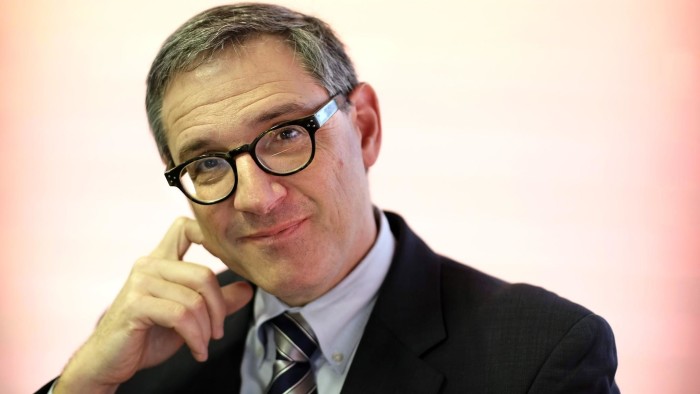Dean, businessman and social entrepreneur

Simply sign up to the Business education myFT Digest -- delivered directly to your inbox.
Business school deans are well versed in preaching the virtues of teaching entrepreneurship. Peter Tufano, dean of Oxford’s Saïd Business School, has gone one step further and become a business founder.
The US-born graduate of Harvard Business School co-founded Doorways to Dreams, (D2D) a not-for-profit venture that aims to give low-income households access to financial services. As such he is in the midst of trying to introduce a national system of prize-linked savings into the US, similar to the UK’s Premium Bonds programme that has operated for more than 50 years.
The business idea came to him shortly after securing his tenure as a professor at HBS, when he visited south central Los Angeles, a notorious neighbourhood with high poverty and crime rates.
Privilege
“I realised there’s a massive hole [in thinking], both among academics and in the business world,” Prof Tufano recalls. “In the 1980s and 1990s the rush was to serve the wealthy and increasingly wealthier and not serving the rest of folks.”
He returned to HBS determined to try to understand how finance worked for the majority of people, not just for those studying at the business school, who were privileged enough to work for some of the world’s largest companies.
“I used to write on the board . . . ‘rather than help thousands of people make millions of dollars, let’s help millions of people make thousands of dollars’, and I decided I would do it.
“My colleagues at HBS thought this was just a statement that someone would make to get tenure. It sounds politically correct and they didn’t understand that I was serious about it.”
He launched D2D in 2001 with Jeff Zinsmeyer, a former senior executive at the Bank of Boston’s First Community Bank, and Tim Flacke, who had just graduated from the Masters of Public Policy programme at the Harvard Kennedy School of Government. Mr Zinsmeyer became the first executive director of the D2D fund, while Prof Tufano took the role of chairman.
Research and development
They started trading from a rundown brick warehouse in Roxbury, Massachusetts, with half a million dollars in seed funding from the Ford and Annie E Casey Foundations.
D2D is essentially a research and development operation to create innovative financial products for poorer customers that can then be delivered for profit by financial services companies.
“The space that we’re working in is intellectually exciting as well as complex,” says Prof Tufano. “We’ve changed two big federal laws. We’ve launched a new set of products in the US that seem to be working fairly well.”
The push to introduce prize-linked savings is based on the success of such schemes elsewhere. They tap into the same impulse that prompts millions worldwide to buy lottery tickets — the chance to win a prize. The difference between lotteries and these savings products is that the account holders’ principal is not at risk. Rather than earn a small but certain level of interest, they get a chance to earn a large payout.
Social entrepreneurship
D2D has already run a pilot exercise in Michigan, called Save to Win, after discovering a loophole in the US state’s laws that allowed it to test the service with credit unions. Under US federal law it is illegal for banks to have anything to do with something that could resemble a lottery, so D2D is lobbying for Congress to change this.
While D2D provides Prof Tufano with practical experience of social entrepreneurship, he claims his main incentive was to provide others with the kinds of opportunities he knows he was lucky to receive.
“I grew up in relatively modest means and I got lucky, quite honestly, a combination of winning some scholarships and my family.
“I can write cheques, I can go out and paint playgrounds but the thing that I know better than a lot of other people is finance and in that space I think the work that we’re able to do can make people’s lives better.
Comments